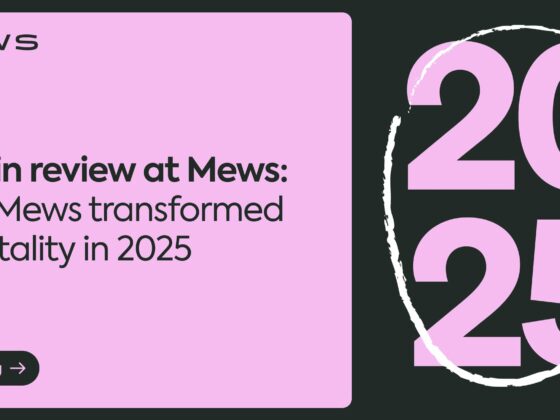
Stratoflow’s latest report, Technology Trends and Key Software Solutions in the Travel Industry, provides critical insights into the evolving travel sector.
The research outlines current travel trends, the smart application of AI-based solutions, and the adoption of technology.
According to the report, global tourism is recovering, especially in Asia, due to increased Chinese travel and relaxed visas, while the Middle East and Africa benefit from the Gulf’s unified tourist visa.
Europe is seeing growth with Romania and Bulgaria joining Schengen and Paris hosting the 2024 Olympics, though regional conflicts could affect confidence.
The report reveals 67% of tourism professionals expect better performance in 2025, while only 6% predict a decline.
Stratoflow’s travel tech experts highlight that Online Travel Agencies (OTAs) are using AI to offer dynamic, personalised pricing based on customer behaviour, booking trends and competitive analysis.
Not only does it increase conversion rates, but also improves customer loyalty.
“The use of AI in the travel industry goes far beyond marketing and sales,” said Stratoflow travel tech expert, Arkadiusz Drysch. “It has the potential to improve every part of the travel experience, from personalised trip planning to smart digital concierges and adaptive itineraries.”
To successfully implement AI, it says OTAs must ensure their IT infrastructure can support these new technologies, aligning AI-driven solutions with their business goals.
Investing in AI-driven personalisation is no longer optional – it’s essential, with the report
Highlighting that more than 70% of consumers expect personalised interactions and become frustrated when that isn’t the case.
Stratoflow CEO Michał Głomba said: “Provide personalised experience and build your products in the front office. The missing bits: a traveller’s golden record (comprehensive traveller data) collecting past activities and AI/ML recommendation technology.”
Custom software development continues to be the first choice for travel companies looking for customised solutions. But the report highlights an emerging trend – open-source development platforms that speed up development processes.
It says custom-built tools such as metasearch engines, property management systems (PMS), and travel search engines are critical to gaining the flexibility they need to remain agile and meet the demands of a fast-changing industry.
Development platforms such as Openkoda provide a hybrid solution, allowing custom systems to be built quickly and cost-effectively while retaining full code ownership through its open-source core.
“This flexibility is invaluable in a fast-changing market, allowing OTAs to adapt their technological solutions rapidly in response to new challenges and opportunities”.
Another trend that the report points out is sustainability, suggesting that online travel agencies should curate a portfolio of certified eco-friendly options, such as LEED-certified properties, and use recommendation engines to match travellers with sustainable choices.
Implementing eco-friendly scoring systems can also help attract environmentally conscious consumers.
Looking forward, Augmented Reality (AR) is set to revolutionise the travel experience and virtual tours, interactive maps, and 360-degree videos could soon become essential features for travel agencies looking to offer immersive experiences.
Although AR is not yet widely adopted, the report recommends that businesses should start planning how to integrate this technology into their long-term strategies.









